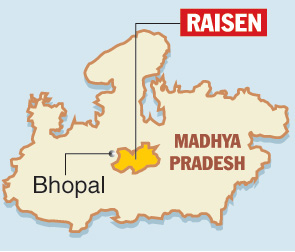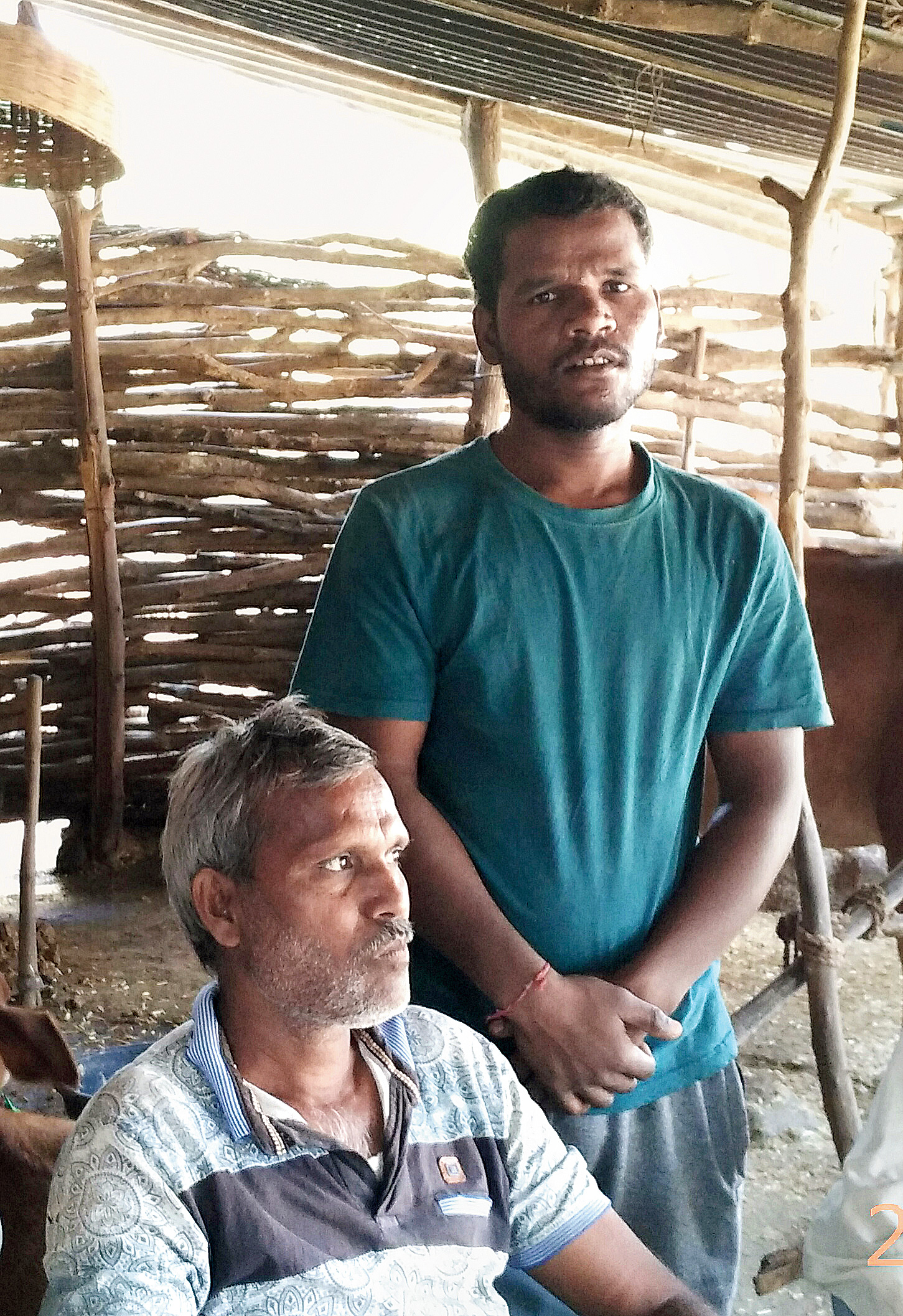Interviews are sometimes cut short because some questions make those interviewed uncomfortable.
The roles were reversed at Khasrod village in Madhya Pradesh’s Raisen district, around 50km from Bhopal.
Questions about the so-called “national issues” — the temple, the tallest statue, the quality of the political discourse, the distortion of history — burst the dam on the everyday challenges.
The flood that cascaded down centred on one issue: lack of employment opportunities in spite of some families breaking centuries-old barriers and sending out their children to study.
So much so that eventually, almost every “national” question was met with an instance of how an educated sister is stuck at home and how a graduate son found out that farm labour pays better than a private company. The narrations ended with an appeal: “Please write about the need to create jobs.”
The “interview” ended abruptly because every question was triggering traumatic accounts of lives spent in the hope that the system will deliver if the citizens fulfil their part.
Rajkumar Uike, a tribal youth living in the village, had agreed to speak to The Telegraph on one condition that itself spoke volumes about what matters: the questions should be limited to the problems he faced as a farmhand.
Rajkumar’s little home falls in the Bhojpur Assembly constituency, named after Raja Bhoj, one of the most celebrated Indian kings who ruled Malwa and was known for patronising the arts and science in the 11th century.
This newspaper could not verify some of the specific information listed by Rajkumar as officials are busy with preparations for Wednesday’s elections. But signs of abject poverty were visible everywhere and there was little reason to doubt the young man.
Excerpts from the unfinished “interview” follow:
Q: You are a farmer?
Rajkumar: No, farm labourer. I look after somebody’s farm.
Q: How much do you earn in a month?
Rajkumar: (Smiles and gives a blank look. Wretched poverty displayed all over, on clothes, on the hut, on the utensils….)
Q: What are the problems you face in looking after the farm?
Rajkumar: DAP (fertiliser) price is up. Electricity comes from 2.30 at night to 6 in the morning. I have to wake up at night to start the pump. We want electricity from 10am to 6pm.
Q: But the chief minister says 24-hour power supply is ensured.
Rajkumar: For 24-hour supply, they charge Rs 32,000 for four months. We pay Rs 15,000 for four months.
Q: You get the MSP decided by the government for your produce?
Rajkumar: Got Rs 1,750 for wheat, MSP is Rs 1,840.
Q: Got money for building a house?
Rajkumar: No, nobody got it in our village. Only one house under the PM Awas Yojana, nobody under the state scheme. Officers say “no scheme for your village”.
Q: But you didn’t follow it up?
Rajkumar: Officers don’t listen. So many documents they ask for…. Even in banks, Aadhaar has become another problem. Chappal toot jate chakkar lagate (the footwear gets worn out, going around in circles).
Q: But Modiji says he opened bank accounts for the poor.
Rajkumar: Anybody who had money could have opened an account anyway. What’s the benefit of a zero balance account?
Q: But you are at least allowed to enter banks.
Rajkumar: (Points to another person who had just arrived.) Ask him if the accounts could be opened earlier. He is Harlal Gaur, a big farmer.
Harlal: I opened my account 30 years ago. Earlier, you had to fill up one slip, now they torture you by asking for endless sets of documents.
Q: Did you get fasal bima (crop insurance) benefits?
Rajkumar: Not one paisa. Neighbouring villages Ashapur and Nimkheda got it. Here we don’t have good quality dhan (paddy) but they put us in that category. Our dhan was bad but we didn’t get anything. Nothing for wheat.
Q: Did you benefit from the Ladli scheme for daughters?
Rajkumar: Nobody so far. They registered girl children but they will get Rs 1 lakh only when she passes Class VII after reaching the age of 18 years. Over 80 per cent of girls drop out after fifth or sixth as there are no schools in the village. A few who will get will have to wait till they turn 18.
Q: But you get wheat and rice for Re 1 a kg?
Rajkumar: Yes, I do.
Harlal: I don’t, only BPL cardholders do.
Q: Will the Shivraj Singh Chouhan government come back?
Rajkumar: (Silence)
Harlal: No way.
Q: So, do you feel proud Modiji enhanced the prestige of the country in the world?
Rajkumar: There are no jobs. It is becoming a big problem.
Q: But you got the biggest statue of Sardar Patel worth Rs 3,000 crore.
Rajkumar: I am a BCom (graduate). Private companies give Rs 6,000 a month. That’s why I chose to be a farm labourer.
Q: Aren’t you proud Hindu leaders are in control now?
Rajkumar: My sister is also a BCom (graduate). We studied in Obaidullahganj (the nearest town, 8km away).
Harlal: My two sons did MCom from Bhopal. Both are sitting at home. Should I call them?
(The floodgates open. Several people start recounting their plight.)
Rajkumar stepped out of his home to remind the reporter: “Write something about employment creation. That’s the main issue.”
His sister, the commerce graduate who assists him in farming and looking after the cow, was peeping from behind a curtain. She belongs to a rare tribal family that cared to educate its children despite facing extreme social and financial difficulties in this remote village.
On the day the “interview” was conducted last week, Prime Minister Narendra Modi was in the state explaining how Rahul Gandhi and Kamal Nath were seeking Muslim votes. Uttar Pradesh chief minister Yogi Adityanath was also campaigning here, saying the Congress needed “Ali” not “Bajrangbali”.

The Telegraph











